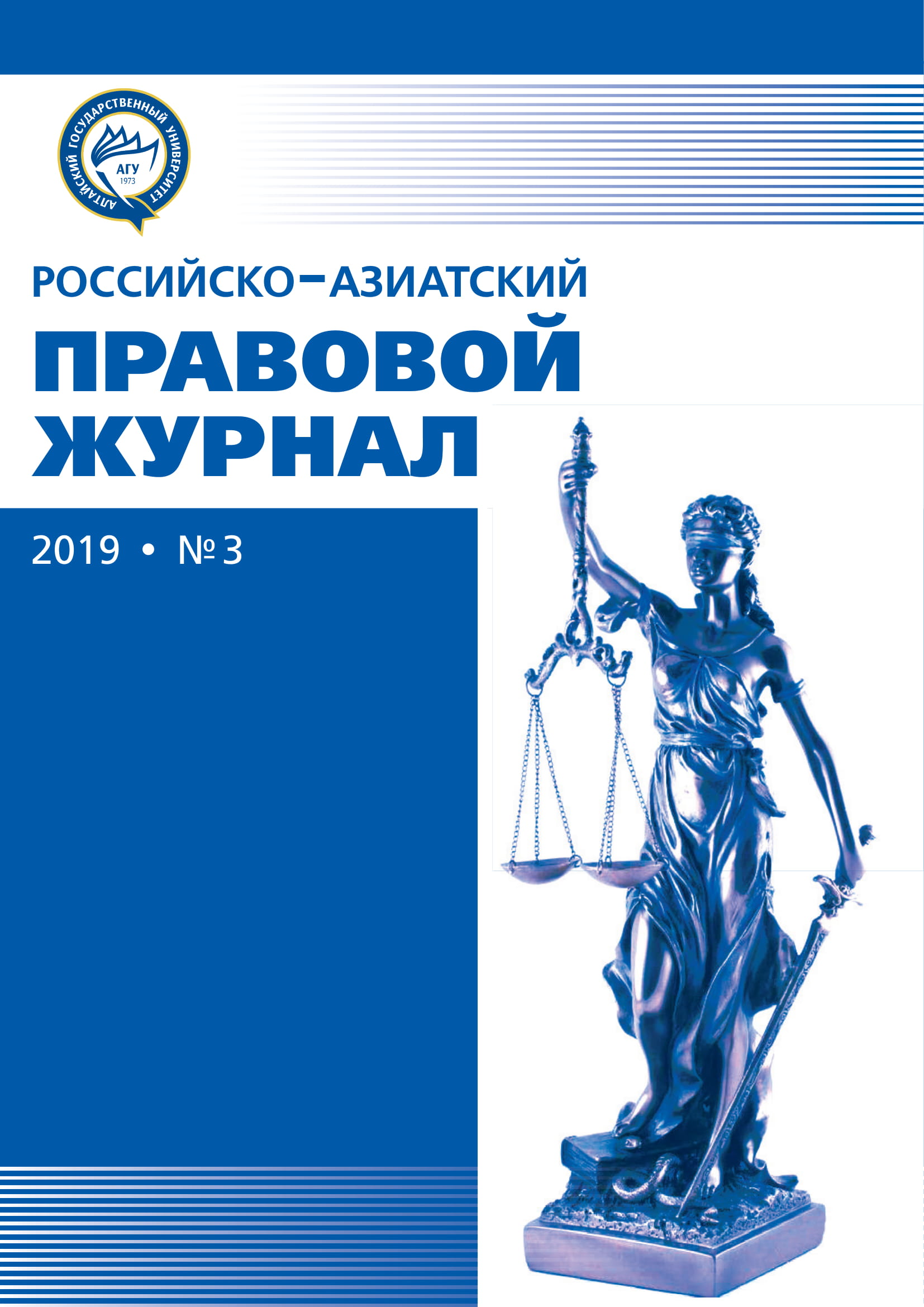THE CONSTITUTIONAL PRINCIPLE OF SOCIAL STATE AS AN ONTOLOGICAL MATRIX OF SOCIAL PSYCHOLOGY OF THE CONTEMPORARY RUSSIAN CONSTITUTIONALISM
УДК 342.4:316.6
Abstract
The represented paper is a result of the author’s comprehension of the terms of socialism, sociality andsocial state in regard to the issues of social (mass) psychology of the contemporary Russian constitutionalism.On the basis of an analysis of the brief social and political essay of Albert Einstein “Why socialism?” it isconcluded that the term of socialism should be interpreted today far more wider than just in the frameworksof the relevant socialistic and utopian doctrines. As a conclusion author stresses the current tasks ofthe constitutional development of Russia in order to improve realization of the social state’s standards,and highlights in this regard a prior significance of forming of the relevant content and quality of socialpsychology of the contemporary Russian constitutionalism.The represented paper is a result of the author’s comprehension of the terms of socialism, sociality andsocial state in regard to the issues of social (mass) psychology of the contemporary Russian constitutionalism.On the basis of an analysis of the brief social and political essay of Albert Einstein “Why socialism?” it isconcluded that the term of socialism should be interpreted today far more wider than just in the frameworksof the relevant socialistic and utopian doctrines. As a conclusion author stresses the current tasks ofthe constitutional development of Russia in order to improve realization of the social state’s standards,and highlights in this regard a prior significance of forming of the relevant content and quality of socialpsychology of the contemporary Russian constitutionalism.
Downloads
References
2. Монтескье Ш.Л. О духе законов. М., 1999. 672 с.
3. Анисимова Н. Социологи сравнили отношение россиян к советской и нынешней власти //
Официальный сайт компании РосБизнесКонсалтинг, дата публикации: 05.08.2019. URL: https: //
www.rbc.ru/politics/05/08/2019/5d47c4449a79477f6404a193 (дата обращения 07.08.2019).
4. Эйнштейн А. Почему социализм? URL: http: // www.economicdemocracy.ru/common/ why_
socialism.php (дата обращения 07.08.2019).
5. Чиркин В.Е. Социальная справедливость и российская Конституция // Соц. справедливость
и гуманизм в современном государстве и праве : матер. Междун. научн. конф. / отв. ред. Т.А. Сошникова. М., 2015.
6. Пряхина Т.М. Конституционные основы социальной справедливости // Социальная справедливость и гуманизм в современном государстве и праве : матер. Междун. научн. конф. / отв. ред.
Т.А. Сошникова. М., 2015.
7. Авакьян С.А. Конституционное право России. Учебный курс : уч. пособ. : в 2 т. Т. 1.: 5-e изд.,
перераб. и доп. М., 2014. 864 с.
8. Комментарий к Конституции Российской Федерации / под ред. проф. В.Д. Зорькина: 3-e изд.,
пересмотр. М., 2013. 1040 c.
Russian-Asian Law Journal is a golden publisher, as we allow self-archiving, but most importantly we are fully transparent about your rights.
Authors may present and discuss their findings ahead of publication: at scientific conferences, on preprint servers, in public databases, and in blogs, wikis, tweets, and other informal communication channels.
Russian-Asian Law Journal allows authors to deposit manuscripts (currently under review or those for intended submission) in non-commercial, pre-print servers such as ArXiv.
Authors who publish with this journal agree to the following terms:
- Authors retain copyright and grant the journal right of first publication with the work simultaneously licensed under a Creative Commons Attribution License that allows others to share the work with an acknowledgement of the work's authorship and initial publication in this journal.
- Authors are able to enter into separate, additional contractual arrangements for the non-exclusive distribution of the journal's published version of the work (e.g., post it to an institutional repository or publish it in a book), with an acknowledgement of its initial publication in this journal.
- Authors are permitted and encouraged to post their work online (e.g., in institutional repositories or on their website) prior to and during the submission process, as it can lead to productive exchanges, as well as earlier and greater citation of published work (See The Effect of Open Access).








